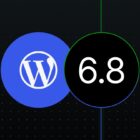
On October 23, Jason Schuller officially announced that his new side project built on WordPress was open to the public. The idea behind DSKO was to solve the issue of discoverability for creators and brands across various networks and websites by consolidating everything into a single space.
The website offers an easy signup process. DSKO currently features 220 profiles, but that number is sure to grow. For now, the site is purely about discovering creators and finding out how to contact or follow them through website or social media links.
The site allows profile creators to set up a bio, image, and even video, such as the one seen on the ArtSnacks profile. It will be interesting to see how people use this new WordPress-based site as a branding tool.
“I’ve been asked what the incentive is to re-visit DSKO after you’ve created a profile,” said Schuller in a Twitter update. “I have features (some nearly finished) in the works which will make that crystal clear.”
Schuller has been active within the WordPress community for over a decade. He originally launched Press75, a WordPress theme shop, in 2008 with a focus on video-centric themes. Like several others in the theme business at that time, he had the fortune of good timing. From 2008 through the next couple of years, theme companies enjoyed little competition and a wide-open market for exploration. However, business growth plateaued after a while.
“I quickly realized that my perception of how to properly launch and scale a project had been skewed by my experience with my WordPress theme business,” wrote Schuller in a history of his theme business. “With Press75, I just built it and they came — a strategy that surprisingly doesn’t work so well the majority of the time for new ventures.”
Unable to duplicate his early success and unhappiness with the direction of WordPress theming, he sold Press75 in 2014. Since then, he has moved onto new ventures such as Leeflets, a single-page website creator on top of WordPress.
“There seems to be growing interest in minimalist single-page website solutions for simple profiles (e.g. Carrd.co, Linktr.ee, etc),” said Schuller. “After building [Leeflets] last year, it occurred to me that while all of these options are great for creating an individual site/page, none of them enable the people and brands who are using them to be discovered beyond organic search via Google or sharing a URL across various other networks. My goal was to see if I could solve that by creating a discovery network for people and brands.”
The inspiration behind DSKO came from projects like existing single-page website builders. Schuller said the grid design and navigation were inspired by the image-sharing site Unsplash while Twitter inspired the profiles. “I wanted it to be extremely quick and easy to browse, find and consume profiles,” said Schuller.
While borrowing concepts from popular projects already in the wild, he wanted to put his spin on them. One interesting custom feature is the ability to connect profiles on the DSKO site to other profiles. For example, a person (creator) can connect his or her profile to a separate brand profile. This helps with the discoverability aspect by allowing visitors to browse connected profiles.
The Technology Running the Network

DSKO is a completely front-end interface built on top of WordPress and shows what can be done without sending users to the WordPress backend.
“Essentially, DSKO boils down to users, profiles, categories, and tags which makes WordPress the perfect framework,” said Schuller. “The functionality was there, I just needed to create a custom front-end experience to manage it all. Most of my recent projects have utilized WordPress this way, and every time I make something new, I borrow aspects from the previous project.” This allows Schuller to bring a project from the concept stage to production more quickly.
The only third-party plugin running on the site is Admin Columns Pro, which makes it easier for Schuller to manage users and content based on custom fields.
For those who create a profile on DSKO, one uncommon feature is that there is no password field. Instead, the site provides a “magic” login link. “Essentially, by removing the concept of a password, I’ve simplified the onboarding process and am validating a real email address (ensuring a real user) at the same time.”
The system generates a unique login token when the user creates a new account. The token is sent as a link to the user email address. The link is used to log into the site. When a session expires or a user logs out, users can get a new link by re-entering their email address.
Currently, the code behind the site is not available to the public. However, Schuller did say that he would consider opening up the platform in the future. Starting from a more mature codebase could help other developers in the WordPress space build interesting projects where similar features are needed.
Beyond DSKO: The Present and Future for Schuller
Schuller is currently on contract with 10up. He primarily works with them on the Microsoft In Culture project. “[It] has been an amazing project to be a part of,” said Schuller. Because the contract is only part-time work, it leaves him enough creative freedom to experiment with ideas like DSKO.
Another creative pursuit is an upcoming WordPress plugin that he’s building along with Phil Kurth. It will allow site owners to map custom domains to any post or page on a single WordPress install. The idea was inspired by his work with Leeflets. “It’s going to be the first WordPress product I’ve been a part of since I sold my theme business in 2014.”




